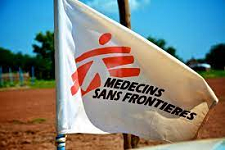Médecins Sans Frontières / Doctors Without Borders (MSF), an international medical and humanitarian organization, announces the restart of activities in Gambella and Somali regions of Ethiopia.
“We are relieved to once again provide some assistance to people in these areas, many of whom have gone without essential and even life-saving care during the period of our suspension. Services in 84 locations across four regions (Amhara, Gambella, Somali, Tigray) of the country were suspended by governmental order in July of 2021, and subsequently lifted in October 2021,” accordign to MSF press statement.
The restart of some medical and humanitarian activities in Gambella and Somali regions is in addition to on-going medical programmes in Afar and Southern Nations, Nationalities and People’s region.
Services in Kule, Gambella region, officially restarted on 7 March with the reopening of emergency room and maternity services. Additional services have since started, including an outpatient department covering a range of healthcare needs such as providing immunization against diseases like measles for children, and a range of sexual and reproductive healthcare for families.
The inpatient department responds to the needs of both pediatric and adult patients, including an inpatient therapeutic feeding centre, providing specialized care to malnourished children. More than 12,000 patients were seen in the outpatient department by the end of April just in Kule alone. One third of patients were children under five.
These patients are primarily people from South Sudan who have sought refuge across the border in Ethiopia and who would otherwise have none or very little access to healthcare. Some water-trucking has also restarted outside the camps in Kule, acting as a vital lifeline by ensuring clean drinking water is accessible.
In Wardher, Somali region, rains have finally started, but local people are still experiencing compounded challenges of food and water insecurity linked to an extended period of drought. This natural disaster, reported as the worst in 40 years, has put their livelihoods at risk, with animals succumbing to malnutrition, sickness and death.
To respond, MSF restarted surveillance and prevention activities in Dollo zone to better understand and respond to the emergency health needs of people in this area. Already, MSF teams responded to a measles outbreak in Wardher, vaccinating close to 7,000 children between 9 – 59 months in a vaccination campaign across fifty different vaccination sites.
Outside of the town and camp areas in the region, it is challenging to have a concrete understanding of the situation faced by rural communities in harder-to-reach locations, closer to the Somalia border. However, people tell us they anticipate their challenges to grow, with particular concern about the survival of livestock, and the impact this has on their ability to feed themselves and their families.
Today, in Gambella and Somali regions, while we are relieved to have restarted some medical and humanitarian services in solidarity with communities we are present to support, our concern for people impacted by compounded crises of conflict, displacement, food insecurity and limited access to healthcare countrywide remains.
For almost 40 years, across all regions of Ethiopia, MSF has been assisting communities who lack access to adequate healthcare. We are committed to improving the availability and accessibility of health services in areas where it is safe for us to do so, and where we are facilitated with the necessary resources.
